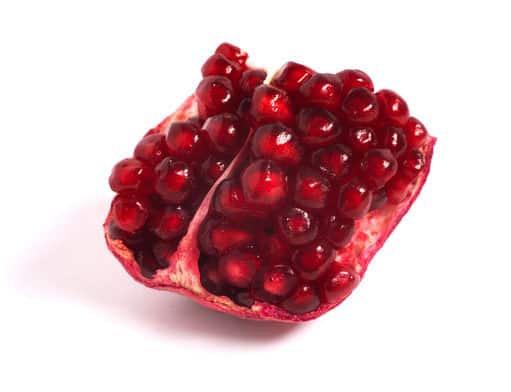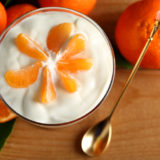

The pomegranate is a unique fruit that typically makes a short-lived appearance in the produce section each autumn. Containing a maze of brightly tart, slightly sweet seeds inside of inedible flesh that’s covered by a bark-like skin, pomegranate seeds and their juice lay claim to some encouraging news for the millions of people with elevated blood pressure.
About High Blood Pressure
Known clinically as hypertension, high blood pressure is an extremely common condition characterized by the force of the blood against the artery walls being high enough to eventually cause health problems, such as heart disease. The leading cause of stroke and a major cause of heart attack, at least one in four American adults have high blood pressure. Although they could consist of headaches, dizziness or multiple nosebleeds, most people with hypertension have no signs or symptoms.
A blood pressure reading appears as two numbers: systolic and diastolic.
- Systolic – The first and higher of the two blood pressure numbers measures systolic pressure, the pressure in the arteries when the heart beats and fills them with blood.
- Diastolic – The second blood pressure number measures diastolic pressure, the pressure in the arteries when the heart rests between beats.
Blood pressure is typically elevated when large amounts of blood are pumped by the heart and/or the arteries where the blood passes through are narrow. People with blood pressure readings of 140/90 or higher, taken on at least two occasions, have hypertension.
Including strategies such as smoking cessation, a low-fat and high fiber diet, relaxation, and regular aerobic exercise, most physicians advise strict adherence to a heart-healthy lifestyle to manage hypertension. If these steps are insufficient, medications such as diuretics, ACE inhibitors, Angiotensin II receptor blockers, Beta blockers or Calcium-channel blockers may be prescribed. To prevent hypertension or to help manage it, many educated persons also supplement with nutraceuticals and/or eat foods known to exert a natural blood pressure lowering effect.
About Pomegranates and Hypertension
In North America, pomegranates are traditionally available in the fall, first appearing in stores in late summer and lingering there until early winter. Often referred to as a super-food, pomegranates are the fruit of the Punica granatum tree – and may be beneficial to those with elevated blood pressure:
- A rich source of Vitamin C, one pomegranate can provide about 40 percent of the daily Vitamin C requirement. As published in the May 2012 American Journal of Nutrition, Johns Hopkins researchers found that in short-term trials, supplementing with Vitamin C lowered systolic and diastolic blood pressure readings.
- The juice extract from pomegranates is a good source of polyphenols, antioxidants that help protect cells from damage and lower inflammation in the body. According to a piece in the January 2009 Nutrition Reviews, pomegranate polyphenols may help ward off heart disease and reduce systolic blood pressure.
- An ounce of pomegranate juice contains 67 mg of potassium. According to the American Heart Association, potassium helps control high blood pressure because it minimizes the effects of sodium on blood volume.
Adding to evidence of pomegranate’s bounty of Vitamin C, polyphenols and potassium, John’s Hopkins researchers published a compelling study in the May 2011 edition of the journal Complementary Therapies in Clinical Practice. In this study, the researchers sought to discover the effect of pomegranate juice consumption on blood pressure and cardiovascular health. They concluded pomegranate juice consumption may reduce systolic blood pressure, inhibit serum ACE activity (prevent vasoconstriction), and is convincingly a heart-healthy fruit.
Pomegranate Cautions
It appears that pomegranates are ideal for people wanting to prevent or manage hypertension. However, the pomegranate’s potency on the body’s vasculature also warrants caution. This is predominantly because pomegranate consumption could cause blood pressure to drop too low if taken with certain hypertension medications:
- Pomegranate juice may interact with ACE inhibitors such as Capoten, Vasotec, Prinivil, Zestril and Altace.
- In addition, pomegranate may interact with other blood pressure drugs such as Cozaar, Diovan, Cardizem, Norvasc, Hydrodiuril and Lasix.
As such, anyone taking hypertension medication is advised to discuss the impact of pomegranate consumption (either the juice or the fruit) with their physician or pharmacist.
Larger, more in-depth studies investigating pomegranates for reducing blood pressure must materialize before physicians begin touting this unique fruit’s heart-health capabilities. Luckily, autumn’s delivery of the pomegranate is a delicious occasion, and enjoying its taste is reason enough to indulge. As long as your medications don’t interfere, those with blood pressure concerns can celebrate the arrival of fall with the pomegranate, knowing that there is a possibility this fruit may contribute to a healthful cardiovascular system.




